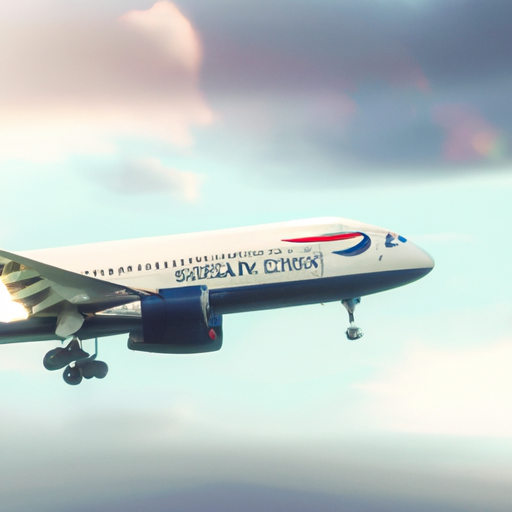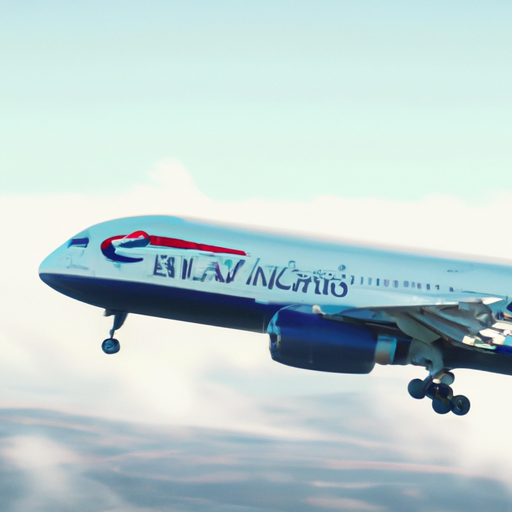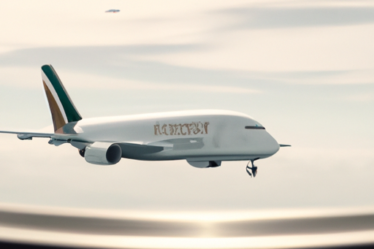
Benefits of British Airways transitioning to Avios earning based on revenue
British Airways, one of the world’s leading airlines, has recently made a significant change to its loyalty program. Instead of earning Avios points based on the distance flown, members will now earn points based on the amount spent on their tickets. This transition to revenue-based earning has several benefits for frequent flyers and is a move that many other airlines have already made.
One of the main advantages of this new system is that it rewards customers who spend more on their flights. In the past, travelers who flew long distances but purchased cheaper tickets would earn fewer Avios points than those who flew shorter distances but paid higher fares. This often left customers feeling frustrated and undervalued. With the transition to revenue-based earning, British Airways is now able to recognize and reward those who spend more on their travel, regardless of the distance flown.
Another benefit of this change is that it simplifies the earning process for members. Previously, travelers had to calculate the distance of their flights and then determine how many Avios points they would earn based on a complex formula. This could be time-consuming and confusing, especially for those who were not familiar with the program. By basing the earning on revenue, British Airways has made it much easier for members to understand how many points they will earn on each flight. All they need to do is look at the price of their ticket, and they will know exactly how many Avios points they will receive.
Furthermore, this transition also aligns British Airways with other major airlines that have already implemented revenue-based earning. This means that members can now earn Avios points in a similar way when flying with partner airlines, making it easier to accumulate points for future travel. This is particularly beneficial for those who frequently travel on codeshare flights or who have a preference for flying with partner airlines. It allows them to earn and redeem Avios points across a wider network of airlines, providing more flexibility and options for their travel plans.
Additionally, the transition to revenue-based earning also opens up new opportunities for members to earn Avios points. In the past, only flights booked directly with British Airways or its partner airlines would earn points. However, with the new system, members can now earn points on a range of additional purchases, such as seat upgrades, baggage fees, and even in-flight meals. This means that travelers can accumulate points faster and have more opportunities to enjoy the benefits of their loyalty.
In conclusion, the transition to Avios earning based on revenue by British Airways brings several benefits for frequent flyers. It rewards customers who spend more on their flights, simplifies the earning process, aligns with other major airlines, and opens up new opportunities to earn points. This change not only enhances the loyalty program but also improves the overall travel experience for members. So, whether you’re a frequent flyer or someone who enjoys the occasional trip, British Airways’ transition to revenue-based earning is definitely something to be excited about.
How the transition to Avios earning based on revenue affects frequent flyers

British Airways, one of the world’s leading airlines, has recently made a significant change to its loyalty program. The airline has transitioned to a new system for earning Avios, its loyalty currency, based on revenue rather than distance flown. This change has a direct impact on frequent flyers, and it’s important for them to understand how it will affect their earning potential and benefits.
Under the previous system, frequent flyers earned Avios based on the distance of their flights. The longer the flight, the more Avios they would earn. This meant that travelers who frequently flew long-haul routes would accumulate a significant number of Avios, which they could then redeem for flights, upgrades, or other rewards. However, this system had its limitations, as it didn’t take into account the fare paid or the class of service.
The transition to revenue-based earning is a significant shift in how Avios are awarded. Now, instead of earning Avios based on distance, frequent flyers will earn them based on the amount they spend on their tickets. This means that travelers who purchase more expensive fares or fly in premium cabins will earn more Avios than those who opt for cheaper fares or economy class.
While this change may initially seem disadvantageous for those who frequently fly on cheaper fares, it actually has its benefits. By aligning Avios earning with revenue, British Airways is rewarding its most valuable customers. Those who spend more on their tickets or choose premium cabins are likely to be the airline’s most loyal and profitable customers. This change ensures that they are appropriately recognized and rewarded for their loyalty.
Additionally, the transition to revenue-based earning also introduces a new tier system for frequent flyers. British Airways now offers three tiers: Blue, Bronze, and Silver. The tier a frequent flyer belongs to is determined by the number of Tier Points they earn in a year. Tier Points are earned based on the class of service and the distance flown. The higher the tier, the more benefits and privileges a frequent flyer will enjoy, such as priority check-in, lounge access, and extra baggage allowance.
For those who have already accumulated a significant number of Avios under the previous system, there is no need to worry. British Airways has introduced a conversion rate that ensures no Avios are lost in the transition. The Avios earned under the old system will be converted to the new currency at a rate that reflects the value of the fare paid.
In conclusion, the transition to Avios earning based on revenue is a significant change for frequent flyers of British Airways. While it may initially seem disadvantageous for those who frequently fly on cheaper fares, it actually rewards the airline’s most valuable customers. The introduction of a tier system also provides additional benefits and privileges for frequent flyers. For those who have already accumulated Avios under the previous system, there is no need to worry as the conversion rate ensures no Avios are lost. British Airways’ transition to revenue-based earning is a step towards recognizing and rewarding loyalty in a more equitable and meaningful way.
Comparison of British Airways’ Avios earning system with other airlines’ loyalty programs
British Airways, one of the world’s leading airlines, recently made a significant change to its loyalty program. The airline has transitioned to an Avios earning system based on revenue, a move that has sparked interest and curiosity among frequent flyers. In this article, we will compare British Airways’ Avios earning system with other airlines’ loyalty programs, shedding light on the benefits and drawbacks of this new approach.
Firstly, let’s take a closer look at how British Airways’ Avios earning system works. Under the new system, members earn Avios points based on the amount they spend on flights, rather than the distance traveled. This means that the more money you spend on your ticket, the more Avios points you will earn. This change aligns British Airways with other major airlines that have already adopted revenue-based loyalty programs.
One advantage of this new system is that it rewards customers who spend more on their flights. In the past, travelers who purchased expensive last-minute tickets would earn the same number of Avios points as those who booked well in advance and paid significantly less. With the revenue-based system, loyal customers who frequently fly with British Airways and spend more on their tickets will now be able to accumulate more Avios points, which can be redeemed for various rewards such as flights, upgrades, and hotel stays.
However, some frequent flyers may find this change less appealing. Under the previous distance-based system, travelers who frequently flew long-haul routes would earn a significant number of Avios points, regardless of the price they paid for their tickets. This allowed them to accumulate points quickly and enjoy the benefits of their loyalty. With the new revenue-based system, these travelers may find it more challenging to earn a substantial number of Avios points unless they are willing to spend more on their flights.
It is worth noting that British Airways is not the only airline to adopt a revenue-based loyalty program. Many other major carriers, including Delta Air Lines and United Airlines, have already made this transition. The rationale behind this change is that it aligns loyalty rewards with the revenue generated by each customer, allowing airlines to better tailor their offerings and incentives to individual travelers.
While the revenue-based system may not be ideal for all frequent flyers, it does have its advantages. By rewarding customers based on their spending, airlines can better target their marketing efforts and provide personalized offers to their most valuable customers. This can lead to a more satisfying travel experience for loyal customers, as they are more likely to receive relevant promotions and benefits that suit their preferences and travel patterns.
In conclusion, British Airways’ transition to an Avios earning system based on revenue brings it in line with other major airlines that have already adopted similar loyalty programs. While this change may not be welcomed by all frequent flyers, it does offer advantages such as rewarding customers who spend more on their flights and allowing airlines to tailor their offerings to individual travelers. As with any loyalty program, it is important for travelers to carefully consider their own travel habits and preferences before deciding whether this new system is right for them.


